Mariana Velichkova’s interview with the composer and musician Andrea Centazzo
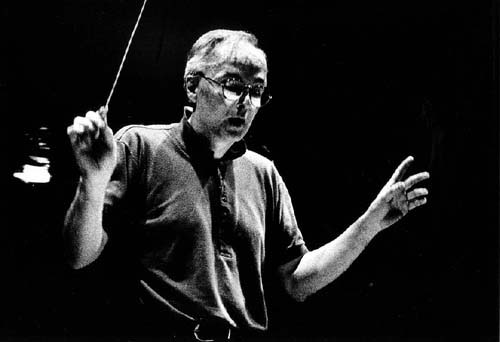
Tell us please how your carrier as a musician and a composer has started?
I never had regular music school training when I was young, basically I was mostly drumming and singing with a schoolmate rock band until I was 22. After that I decided to start serious music study. I can date the beginning of my pro career in 1972 just upon my return from the Swiss jazz school in Bern Switzerland.
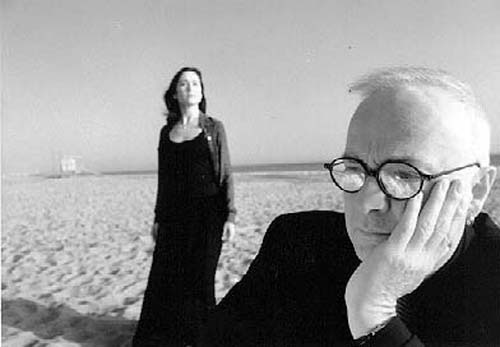
For the fact that I choose avant-garde music and free jazz I can’t really say that I had at that time “motivating factors’, but just the need to express myself in a different revolutionary way! This was also reflected in the life style of those years in Italy where the young generation was trying to break the rules and cut the chains with the past.
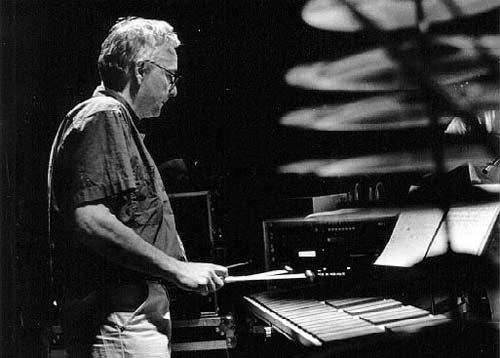
Before 1972 I was an amateur musician… first I studied guitar, then clarinet and finally somebody proposed to me to play drums in the school band and I accepted… We were used to play for the school parties, for friends and rock venues… very local and very amateurish. Actually I was the only one taking it seriously, doing the booking, talking care of the equipment, searching for songs, etc…

For me music was already a mission, for my buddies it was just a way to show off and possibly grab girls… of course I was into grabbing chicks too, but still I would have sacrificed an afternoon to study a song and a night to listen to Max Roach. Professionally I was born as percussionist (actually drummer…) but I always considered myself a composer playing percussion more than a drummer/percussionist.

Thirty-five years later I still love to perform but mostly my composition/improvisations: except for collective improvisation I’m not interested into playing somebody else’s music. As a composer, actually I had some teachers in the beginning, but I never followed a regular school, except the Musicology Faculty at the Bologna University but that was really a kind of a cultural enrichment since I never worked as antique music professor!!!

I have to say that the experience that changed my life was the Summer jazz clinic in Wengen in 1970. Wengen was really the experience that changed my life. Not that I learned much in ten days, but I got Pierre Favre, Peter Giger and Stu Martin (and especially Pierre that I still adore for his immense talent and originality) “discovering” me and pushing me to turn professional. There I had the chance to listen live to some of the most prominent jazz players of that time, even jamming with Johnny Griffin (I was just shaking!!!) and make friends that later I found in touring around the world.
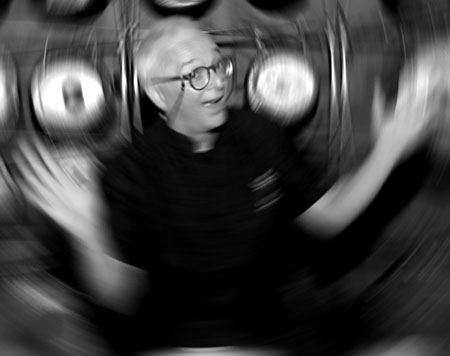
In Wengen I understood that I was born not to be an attorney (as all in my family) but a musician! So when I went back I had a deal with my father, asking permission and some support to go to study in Bern in exchange of the promise to finish my Law University and get my PHD. There’s a funny – now, but at that time was terrible – anecdote about that. When back after one year in Switzerland I had to present my final thesis/dissertation as promised. And I did quite successfully.
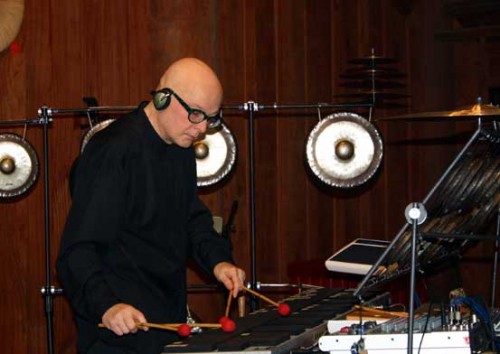
Exiting from the dissertation I found my father congratulating me and saying “Finally you got it. Now it’s time to become a serious person and start you attorney career in our family office”. But I replied “Dad! We had a deal: I promised you to get the PHD in exchange of one year in Bern, but I never promised you to become an attorney. Now it’s time for me to start my musician career”. He stared at me in disbelief and speechless walked away. He didn’t speak to me for almost two years.
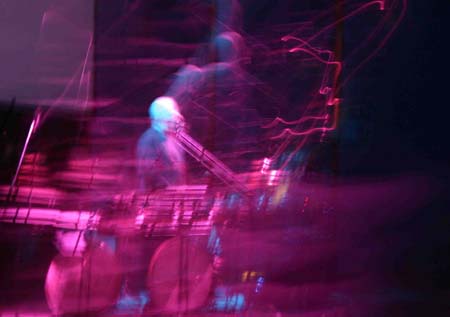
But when just a couple of years later I started to have my name in the newspapers, he understood that my choice was right and we reconnected … Later in his last years he was a real supporter. After that I went to the Bologna University as I said for that musicology degree and in the same time I started to play professionally.”
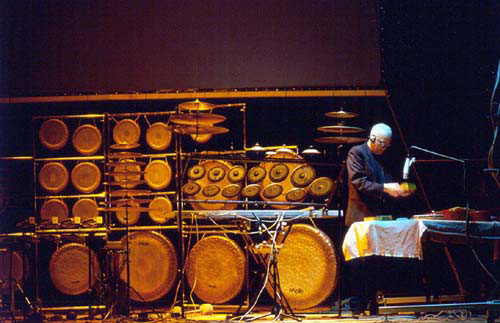
What fascinates you the most: composing music, performing it or teaching music to others?
As I said I consider myself a composer first of all, so that’s what I like to do the most. I have to say that if I’m not on stage, I feel a real craving for that. Even if in the last few years mysteriously nobody is calling me anymore for concerts. But composing is what I like the best since I had the possibility to get the tools of the trade with some great teachers while I was already playing professionally… And now I can compose and instantly listen to the result thanks to new digital technology.
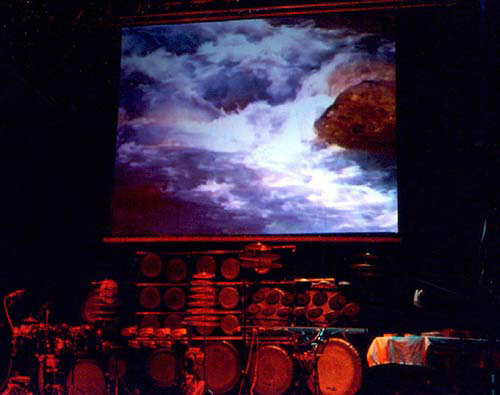
I have to say that when I started to compose I barely could read music but I had the urge to express myself in an organized form so I started to study composition seriously by myself. Later I had a couple of great Italian composers teaching me some fundamentals, but I always composed like in a trance.
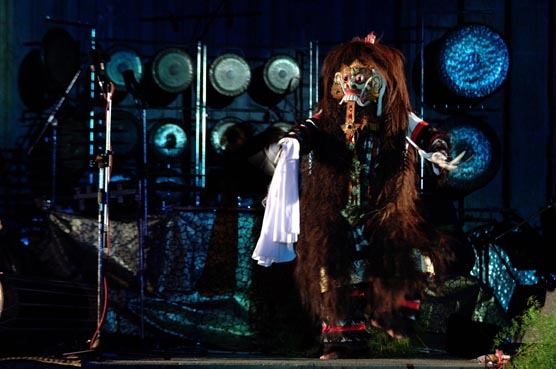
When I finish composing a piece I would always ask myself why I did this and that. I think it’s really something magic. I remember in 1982 when I got the commission for my Andrea Centazzo Mitteleuropa Orchestra concert celebrating the 1000 years of Udine, (unfortunately) my home town: I started to write and I finished it without any problem with the music flooding the pages…
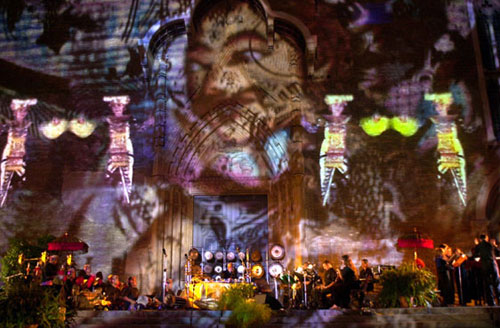
I have to say that I ‘m composing for specific instruments and players only. I always had in mind that composing must be related to performing. Not like some classical avant-garde composers that compose theoretically. If I didn’t have a string quartet ready to perform why to write a string quartet??? All the music I composed was performed and I’m very happy about it – so no need to change anything during the composing process.”
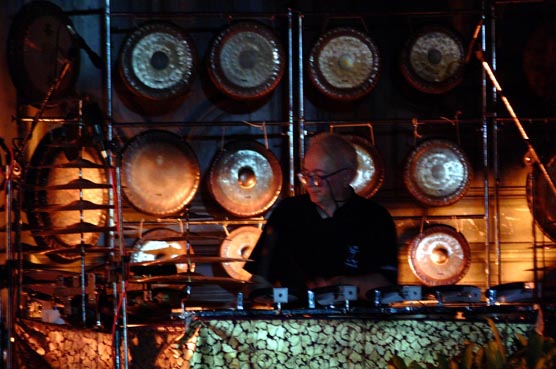
What is the role of the audience in your development as a multitalented musician?
Audience is the final recipient of what you produce on stage and in the studio, but if you start to think to please the audience you end up with something really not sincere and genuine as real art should be. So I never paid attention to audience reactions while composing or performing. But since I always have been well accepted I have to think that the audience always felt my honesty as artist.
We know that music “speaks” universal language, if so what would you like to communicate through your creations and performances?
I never posed that question to myself! I always did what I felt compelled to do with no compromises and no special aims.
My art is first conceived as a pure expression of my self and then if this can please and satisfy the audience, I’m happy.
If not I’m still very happy.
Otherwise I would go for sub-genres as pop music, soundtracks and so on…
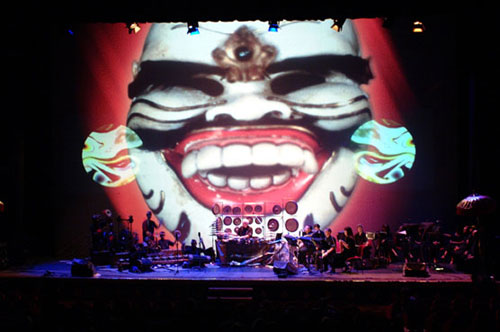
What is the greatest satisfaction for you as an artist and your biggest challenge?
I have always done what I had in mind with no compromises and no regrets.
Organizers and audiences want a steady genre and a steady figure on it…
And of course freedom is costly: that’s why at my age I’m poor and I live a simple -no frills- life. But I wouldn’t go back and change a single thing in my life…
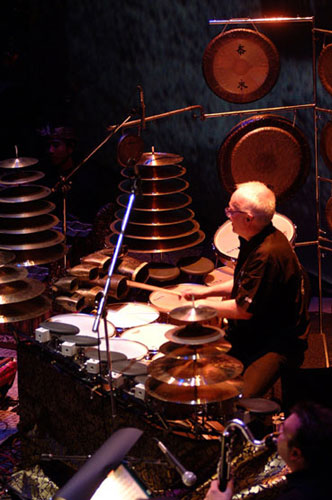
Beside that the other thing I can say is that I had the immense privilege to play with some of the most creative musicians of the 20th century – each of them having a separate story and a separate ending. With most of them I recorded great albums and even if our meeting was one day or one hour it was always worth it!!! I am still in touch with many today; some sadly passed away and some took different directions …

But I have them all always in my heart because they all represent a real step in my music and in my life. I just regret that with somebody like Don Cherry I performed but did not record … Mangelsdorff, Oxley, Lytton, Bauer, Trevor Watts … so many I played with, without now have a trace of it … In any case the Zorn/Corra/Chadbourne/Kondo/Bradfield/Centazzo sextet (and all kinds of combinations we had) for me it was a very important experience since it was the founding of the NY Downtown Music Scene at the end of the 70s’. Unfortunately I decided to go back at that time while I should have stayed in New York.

But you can’t preview your life … so I went back to USA probably too late for my career in 1991, but now it’s almost twenty years that I live in Los Angeles and eight that I’m American citizen. Weird enough when I went back to US to settle down I decided to just compose music and not perform anymore.
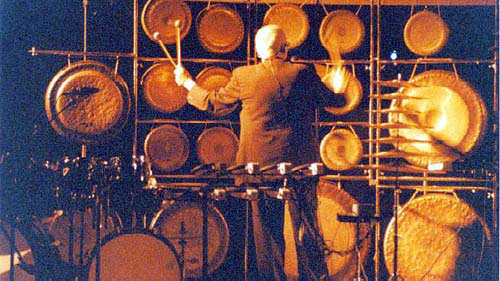
I was kind of disappointed with the jazz scene in Italy and I had the opportunity to be signed with an exclusivity agreement as a composer by Warner Chappell. I was obviously interested in composing my own music (see ICTUS NEW MUSIC SERIES) but basically they sent me to LA for a film composer career. Unfortunately even if I was in a “new age” period writing mostly melodic and straight rhythmic music, I still was too avant-garde for an industry where all is just a formula.

So I had more fights with producers and directors that with anybody else – I decided to write my own stuff. So between 1990 and 2000 I composed three operas, one Symphonic requiem and countless large ensemble compositions. I went back to the jazz scene in 2006 when Cezary Lerski, producer for polishjazz.com asked me to start a joint venture in releasing an ICTUS BOX SET.

Rehearsal in Bali 2002
Going back to the musicians: I have here to pay tribute to the one that really helped me to understand the concept of creativity: Steve Lacy. In 1975 I had a serious problem with my right shoulder. Years before I had an accident playing volleyball and it got worst and worst with playing professionally. So I went to Paris for a month long treatment with a famous shoulder specialist. At that point I knew and I admired Lacy for years so I decided to call him. He was very kind and we had a nice conversation and I gave him my LP’s.
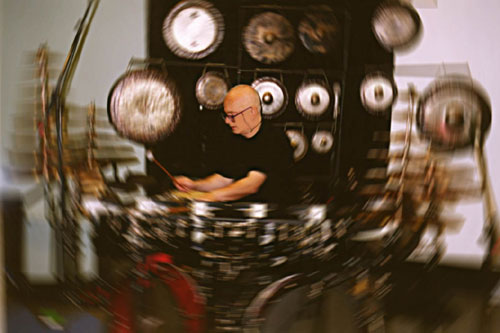
In the meantime I learned from an Italian newspaper that Gaslini had decided to hire another drummer … it was a shock … like having your father stabbing you in the back. But then during my career I found so many of those situations that I got accustomed. So when I went back with no jobs and also big problems since my house had been destroyed by the 1976 earthquake, I decided to write to Lacy asking if he was interested to do a duo tour. I got an immediate answer: YES! So we did this tour and then a year later another with the addition of Kent Carter bass.
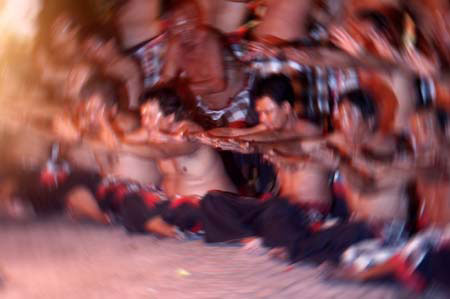
Bali Kekak
I remember vividly the first time I met him in Milan for an afternoon rehearsal. Working with Gaslini, I was used to following the rules rigidly being the sideman and reading a score. So before we could start since we had no scores, nor did I know what we were going to play, I timidly asked “Steve, what do you want me to do???” and he looked at me and placidly said: “PLAY WHAT YOU FEEL!!!” I never forgot that moment in my career. And there it was when the improvising percussionist was born. From that experience I have left three great ICTUS albums (121,123,131), now re-mastered and still fresh and interesting, since Lacy music is always exciting.”

What are the most profound lessons you have learned in your life?
Well… every day teaches me a new lesson. You never finish learning!

Sign
What were the concerts that you would never forget?
Too many to be listed! But for sure something unique was composing and performing SACRED SHADOWS with a Balinese gamelan, a 7-piece ensemble and a choir. The mix between Western and Eastern cultures was so smooth that it gave me a real thrill and to the 2000 people attending the concert a sure pleasure.

Kyoto door
In your opinion what are the essential qualities of a true artist?
I can quote here the great Steve Lacy who was my mentor and partner in a couple of tours and in 3 recordings. I remember vividly the first time I met him in Milan for an afternoon rehearsal. Working up till then with pianist Giorgio Gaslini, I was used to follow rigidly the rules of the sideman and read a score. So before we could start since we had no scores, nor did I know what we were going to play, I timidly asked “Steve, what you want me to do???” and he looked at me and placidly said: “PLAY WHAT YOU FEEL!!!” I never forgot that moment in my entire career .
So it’s all about if you are a true artist.

Kyoto 1001 Buddhas
Is there a performance you dream about but haven’t done yet?
No really. The only thing that I would like is to re-record many of my orchestral works that have been poorly performed and recorded in the past years. But I guess I can survive even without it…

Kyoto temple
What is the most unusual place you have played at?
I performed in factories, churches, beaches, boats, forests, temples, squares, streets, towers, castles, basements… difficult to choose from!

Kyoto Chinese Door
Please share with us the main points in your life philosophy.
I have no life philosophy… or maybe like Paul McCartney was used to sing “live and let die”…
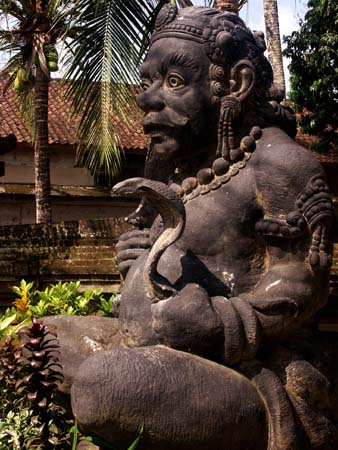
Statue
What is the source/s/ of your inspiration?
Every aspect in life could be a source of inspiration… for example in 1980 I released the three record set “Indian Tapes” and in 1996 its follow-up “The Secret of Joy” – these recordings deal with the spirituality of the Native Americans.

Desert Road
That was homage to the native Indian culture, but nothing is more distant from that music (monophonic and rhythmically simple) than Indian Tapes and later Secret of Joy. Indian tapes were released in 1980. An epic effort for a small label run by just a musician and his wife …
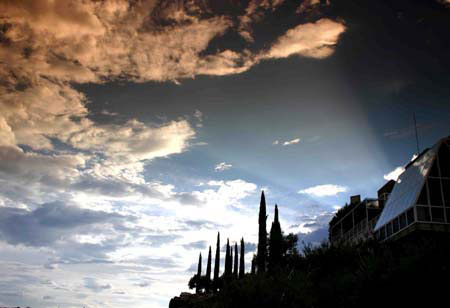
Arizona skies
I had all those recordings and experiments made within five years of home work and I decided that was the time to organize all in a magnum opus, a kind of percussive symphony. It took me one year to record all the new tracks and to use the old material accordingly…
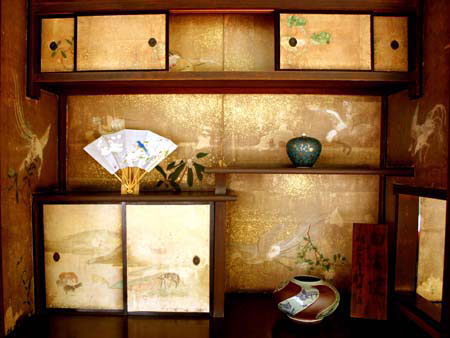
Gold temple
Another example: in 1994 I wrote a piece of music called “A Requiem” (formerly known as “A Bosnian Requiem”); I was horrified with the Balkan war and I decided to do something for that. Nobody paid for the composition: I did it just because I felt to do it. Later Warner published it and made the CD.

Japan Altar
I have to say that the performance is very far from what I was expecting … but that was a youth orchestra and the entire operation was just a workshop. I mean the oboe player was sixteen years old and so on … And I can go on with so many sources of inspiration that finally it’s better to say that life is the inspiration.
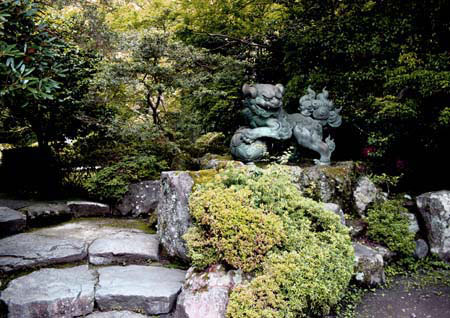
Japan dragon
The biggest secret you have discovered about music is…?
The German philosopher Nietzsche once said “Without music life would be a mistake”.
Since Nietzsche was probably referring to the Western music, I agree just in part with it. The fact is that music is a language and in many cultures still parts of the communication are done with music. So there will be no communication without music … and life will be not social.”

Just Zen
If you are to perform for charity what cause you would like to support?
I did so many that I can’t even remember how many… the Bosnian requiem was one of the countless occasions I did work for free trying to help people…

Kyoto Chariot
Your advice to those who would like to dedicate themselves to the world of music and art is…?
Be sincere and honest with yourself and with the audience. But I guess that to be sincere and honest is old fashion advice in a greedy society where the only things that count are success and money…
So the only thing that I could say is “good luck”.
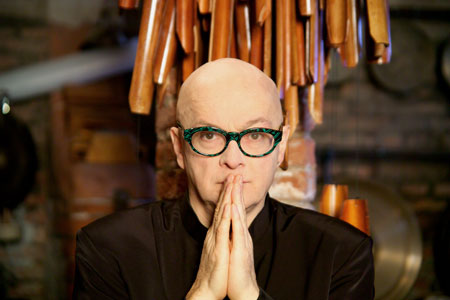
Thank you very much for your sharing and participation!
All photos in Japan are taken by Andrea Centazzo
Biography:
In an artistic career that spans over twenty-five years, Andrea Centazzo has given more than 1000 concerts and live performances in Europe and the United States, as well as having appeared and performed on numerous radio and television broadcasts. He has recorded over 60 LP’s and CD’s, and has authored 350 compositions and eight musicology books.
His musical endeavors and creative expression range from the sublime to the passionate, from lyric opera to orchestral symphony and solo percussion. He has performed in momentous festivals as soloist of his own compositions or as conductor of symphonic orchestras.
Centazzo is a pioneer of contemporary percussion. In the early years, he performed with some of the greatest avant-garde soloists and composers, including J. Zorn, S. Bussotti, S. Lasy, D. Cherry, A. Mangellsdorf, E. Parker, etc. Deservedly, Centazzo has received a number of prestigious music and video awards (Premio Speciale della Critica Discografica Italiana, USA Downbeat Poll, International Video Festival Tokyo, Prix Arcanal of French Culture, etc).
A doctoral graduate in musicology, he has taught seminars and workshops in Europe and the USA. Since 1983 Centazzo has been dedicated to creating multi-media experiences. This expansion began with an exhibition of his scores rendered as painted ideograms and evolved into video performances combining both live performances with video images. These efforts culminated in his directing award-winning videos and films.
As a soundtrack composer he unites traditional instrumentation with current technological advances in musical expression through sampling machines and computers. These efforts give a new perspective to the fusion of sound and image through his theatre, television, video, CD-rom and feature film scores.
The music of Andrea Centazzo captures and expresses the rhythm and pulse of life by synthesizing the mystery of Oriental percussive vibrations with the timbrel harmonic understanding of contemporary music and the soul of jazz and rock post-culture. Andrea Centazzo continues to contribute his unique artistic vision to the evolution of contemporary culture.
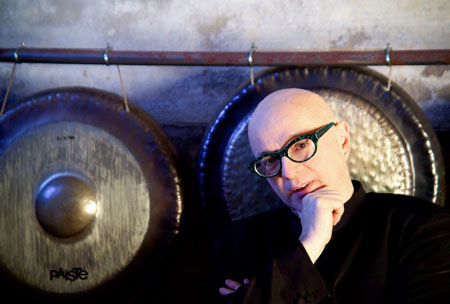











1 comment so far ↓
Nobody has commented yet. Be the first!
Comment